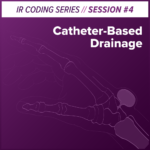Most U.S. Department of Justice (DOJ) investigations do not end up in court. Defendants who lose a civil case risk large fines and penalties, while those who lose criminal cases may face prison time. Either type of conviction can result in exclusion from the federal healthcare programs. Guilty verdicts are learning opportunities for the rest of us.
Two physicians were convicted in the past month or so in similar telemedicine schemes. In the case of Sophie Toya, she prescribed unnecessary orthotics to more than 2,500 Medicare patients during a six-month period.
In the case of David Young, he prescribed unnecessary orthotics and genetic testing for more than 13,000 Medicare beneficiaries over a two-year period. That’s about 20 patients every business day.
Little has been revealed about the Toya defense. But Young’s defense consists largely of claims that he was duped by nefarious fraudsters who took advantage of his being “too trusting” and “naïve.” Young has been a physician since 1993.
The interesting part is the similarities in the cases. Both cases hinged on the definition of “reasonable and necessary.” In these cases, the prosecutors chose claims that clearly lacked merit. There seems to be little gray area in these. Prosecutors documented the small amounts of time spent in patient interaction; these were remote or telemedicine encounters. There was lack of supporting documentation for the devices or genetic studies. The number of encounters would likely double the daily encounters for an office practice, so it strains credibility to believe that such legitimate volumes would have been possible.
Both prosecutions relied heavily on similar legal principles:
- First, lying to federal agents;
- Second, documentation of services that were (purportedly) reasonable and necessary;
- Third, false attestations that the information in the medical record was true, accurate, and complete; and
- Finally, knowingly presenting or causing to be presented a false or fraudulent claim or submitting claims with deliberate ignorance or reckless disregard of their truth or falsity.
In the end, both physicians were convicted of a single count of fraud, carrying a maximum 10-year prison sentence. They were each convicted of three counts of lying to federal agents, each carrying a maximum of 5 years in prison. Then there was, of course, monetary restitution imposed.
Most of those reading this are institutional representatives, agents, or physicians. So, now I come to the part where Toya and Young are important for hospitals and practices.
Many hospitals currently struggle with managing observation stays under CMS-4201, in which Medicare Advantage plans are required to adhere to the Two-Midnight Rule. Many insurance companies have “captive” physician groups, including hospitalists.
These hospitalists may be “incentivized” to subvert Centers for Medicare & Medicaid Services (CMS) regulations by extending observation stays beyond the two-midnight benchmark.
As a reminder, the essence of the Two-Midnight Rule is that in the majority of cases, at the second midnight, the patient is either receiving medically necessary services and is appropriate for a Part A inpatient claim, or the patient is not receiving medically necessary services and is ineligible for CMS coverage.
I propose that by not enforcing this distinction, institutions become complicit with the physicians’ disregard for CMS regulations. The hospital may be submitting claims with “deliberate ignorance or reckless disregard of their truth or falsity.”
This makes compliance accountability more important than ever – but not necessarily easier.













